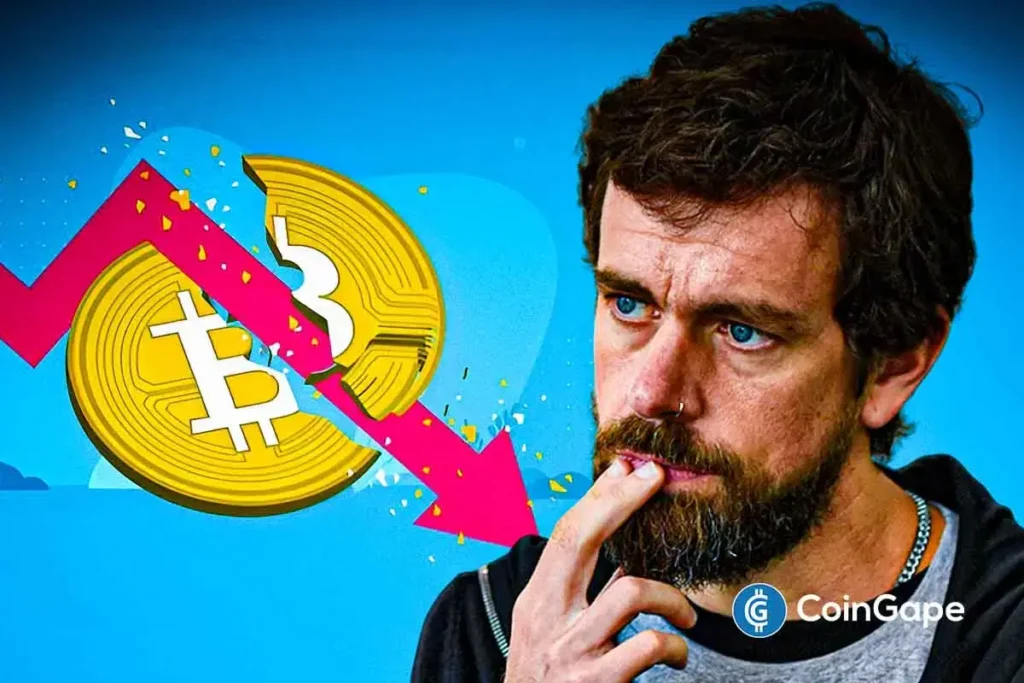Jack Dorsey on Bitcoin’s Future: The Shift from Digital Gold to Everyday Payments
In the ever-evolving world of cryptocurrency, Twitter co-founder and Block Inc. CEO Jack Dorsey has sparked new discussions about the future of Bitcoin (BTC). During a recent appearance on the Presidio Bitcoin podcast, Dorsey expressed his concerns about the current narrative surrounding Bitcoin, which many view solely as a "store of value" akin to digital gold. While this perspective has its merits, Dorsey strongly believes that Bitcoin’s long-term success hinges on its ability to function effectively as a medium of exchange for daily transactions. He warns that reducing Bitcoin to merely a digital asset risks rendering it obsolete in the fast-paced financial ecosystem of today.
Dorsey argues that Bitcoin’s potential lies beyond the realm of investment. He suggests that if BTC is relegated to an asset for speculation—something people buy and hold "in case of emergencies"—it will increasingly become irrelevant. "It has to be payments for it to be relevant on the everyday," Dorsey stated, emphasizing the importance of everyday utility in achieving mainstream adoption. This assertion reignites a long-standing debate within Bitcoin circles about its ultimate purpose: should Bitcoin primarily serve as a medium of exchange, a store of value, or fulfill both roles concurrently?
Revisiting Bitcoin’s original aspirations is crucial, according to Dorsey. He highlights the need to prioritize accessible and efficient payment systems that uphold qualities like speed, privacy, and security, echoing the principles laid out in Bitcoin’s foundational whitepaper by Satoshi Nakamoto. Dorsey’s message points to a desire for Bitcoin to return to its roots as a peer-to-peer digital payment system, which he believes has drifted away from its core mission. This divergence has contributed to the perception of Bitcoin as merely a speculative asset rather than an everyday currency, diluting the revolutionary potential that this technology could provide to global transactions.
One critical concern related to Bitcoin’s role as a payment medium is its volatility. Dorsey acknowledges that BTC’s price fluctuations present challenges for consumers and merchants alike. However, he is optimistic that greater accessibility and widespread adoption will ease these volatility concerns over time. In other words, as more people and businesses start using Bitcoin as a currency for everyday transactions, the market will stabilize, making it a more reliable payment option. He calls on developers and the Bitcoin community to shift their focus from viewing Bitcoin merely as a digital asset to enhancing its utility as a payment method.
Despite Dorsey’s concerns, Bitcoin has witnessed increasing institutional support in recent years. New investment products, including Bitcoin exchange-traded funds (ETFs), have attracted significant interest, even amidst market downturns. Recent data shows Bitcoin’s price declining under $80,000, but it’s essential to note that the trading volume has surged, indicating renewed interest and investment. Moreover, analysts have reported a growing number of large BTC holders, revealing that the cryptocurrency’s institutional adoption is still on the rise. This growing base of institutional investors underscores an evolving sentiment towards Bitcoin, suggesting that it remains a valuable asset class despite its struggles.
The future of Bitcoin appears to be at a crossroads. On one hand, there is a strong push from influential figures like Jack Dorsey to redefine Bitcoin’s purpose and ensure it fulfills its original mission as an accessible peer-to-peer payment solution. On the other, institutional adoption continues to validate Bitcoin’s potential as a significant financial asset. As discussions around Bitcoin as digital gold face new scrutiny, there is an evident need for the community to strive towards a balanced narrative that encompasses both the store of value and everyday transactional utility. By doing so, Bitcoin can solidify its place within the global financial landscape for years to come.
In conclusion, the evolving discourse surrounding Bitcoin highlights the necessity for holistic usage beyond that of a mere speculative asset. Jack Dorsey’s insights signal a critical shift towards recognizing Bitcoin’s potential as a practical payment solution. As we move forward, the emphasis on everyday transactions will be a determinant factor in Bitcoin’s adoption and relevance, ensuring it remains a pivotal player in the financial markets. The time for Bitcoin to transition from the confines of digital gold to a vibrant means of everyday payments is not just a vision—it’s an urgent call to action for developers and the community alike.


